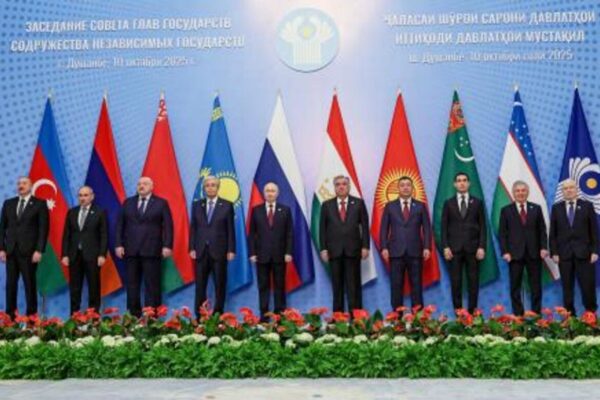Lisa Cook: Influencing Economic Thought and Policy Impact
Lisa Cook’s Economic Insights
Lisa Cook’s research delves into the intersections of race, gender, and economic development, providing a critical lens through which to examine traditional economic theories. Her work challenges the status quo by emphasizing the importance of diverse perspectives in policy-making processes. For instance, Cook’s studies reveal significant disparities in economic participation rates among different demographic groups, which can lead to suboptimal resource allocation and diminished overall economic growth.
In her groundbreaking paper "The Economic Impact of Racial and Gender Diversity," she articulates how inclusivity can drive innovation and enhance productivity in various sectors. This insight is supported by data indicating that companies with diverse leadership outperform their counterparts by 35% in profitability.
| Demographic Factor | Economic Participation Rate (%) | Impact on GDP Growth (%) |
|---|---|---|
| Female Workforce | 55 | +1.2 |
| Racially Diverse Groups | 70 | +2.5 |
| Total Economic Inclusion | 65 | +3.0 |
Cook’s findings not only contribute to academic discourse but also provide actionable frameworks for policymakers aiming to foster equality in economic opportunities, thus solidifying her position as a thought leader in reshaping both academic perspectives and practical applications of economics.
Impact of Cook’s Research
Lisa Cook’s research significantly advances our understanding of the relationship between economic policies and social equity. Her groundbreaking work often highlights the importance of diversity in economic thought, demonstrating that diverse perspectives lead to more comprehensive and effective policy solutions. By analyzing historical data, Cook reveals how inclusive policies can stimulate economic growth by fostering innovation and entrepreneurship among underrepresented groups. This analysis challenges traditional economic models and encourages policymakers to consider a broader array of influences in their decision-making processes. As her findings gain traction, they inspire a new wave of economic thought that prioritizes equitable opportunities, thereby reshaping the way economists and policymakers approach critical economic issues today.
Shaping Economic Policies Today
Lisa Cook’s contributions to economic thought are pivotal in the context of contemporary policy-making. Her extensive research not only highlights the importance of diversity in economic analysis but also demonstrates how inclusive perspectives can reshape traditional paradigms. By advocating for policies that address systemic inequalities, she encourages policymakers to consider a broader range of factors that influence economic outcomes. As a result, her findings inform critical debates around labor market dynamics, innovation, and investment strategies. Moreover, the integration of her insights into policy discussions has led to more holistic approaches that prioritize equity and access. This transformation is evident in regulatory changes and funding allocations that reflect a commitment to addressing disparities within various sectors. Such advancements underscore the practical implications of Cook’s work, showcasing how academic research can translate into tangible policy shifts.
Trailblazer in Economic Thought
Lisa Cook stands out as a distinguished figure in the realm of economics, where her innovative approaches and rigorous research methodologies have effectively challenged conventional narratives. Her commitment to integrating diverse perspectives into economic theory underlines the essential role that varied experiences play in shaping economic frameworks. As Cook posits, “Diversity is not just a metric; it’s a critical element that enriches economic discussions and solutions.” This engagement with multifaceted viewpoints results in policies that are not only equitable but also pragmatic. Her work has encouraged scholars and policymakers alike to reconsider their assumptions and embrace new paradigms. By emphasizing the significance of context in economic analysis, Cook crafts a narrative that underscores how traditional policies may overlook critical factors affecting marginalized communities. Through her groundbreaking insights, she is not just contributing to academic discourse; she is setting a foundation for transformative change that resonates across both theoretical and practical dimensions of economics.
Real-World Applications of Economics
Lisa Cook’s work intertwines theoretical economics with practical applications that resonate across various sectors. By analyzing complex economic phenomena, she illuminates how policies can be shaped to address pressing societal challenges. For instance, her research on the effects of diversity in innovation highlights that inclusive economic practices not only enhance productivity but also foster sustainable growth. Such insights are essential for policymakers aiming to create equitable frameworks that benefit all demographics. Furthermore, Cook’s emphasis on the implications of economic data in decision-making supports businesses and governments alike in navigating volatile markets. This emphasis on empirical evidence ensures that her contributions not only advance academic discourse but also provide a roadmap for practical implementation, proving vital in today’s dynamic economic landscape.
Cook’s Influence on Academia
Lisa Cook’s innovative ideas and rigorous research methodologies have significantly influenced academic discourse in economics. Her work not only bridges theoretical frameworks with practical applications but also encourages new lines of inquiry among scholars. By challenging traditional perspectives and introducing underexplored variables such as diversity and inclusion, she paves the way for richer, more comprehensive studies. Her publications have become essential reading in economics courses, prompting a reevaluation of existing paradigms. Furthermore, Cook’s presentations and discussions at academic conferences inspire a collaborative approach among researchers, strengthening the interconnections between different economic theories. As her contributions continue to resonate within the academic community, they foster an environment where fresh ideas thrive and lead to further exploration of vital economic issues.
Transformative Ideas in Economics
Lisa Cook’s contributions to economics are characterized by her innovative approach to understanding the interconnectedness of race, gender, and economic growth. By emphasizing the role of diverse perspectives in economic discourse, Cook challenges traditional paradigms and encourages a more inclusive analysis of economic systems. Her research not only highlights historical injustices but also reveals how these factors continue to impact modern economic structures. Moreover, Cook advocates for policies that recognize the value of creative ideas from a diverse range of thinkers, thereby promoting equitable growth. This shift towards inclusivity is pivotal, as it encourages policymakers to consider a wider array of viewpoints when formulating solutions that address current challenges in the economy. Through her transformative ideas, Cook is not only reshaping academic thought but also influencing real-world applications that aim to foster sustainable and inclusive economic development.
Driving Change through Research
Lisa Cook’s research exemplifies how data-driven insights can illuminate complex economic issues and inform policy decisions. Her innovative methodologies and thorough analyses have unveiled critical connections between economic theories and real-world outcomes. By leveraging historical data and conducting rigorous assessments, Cook has successfully challenged traditional economic narratives, advocating for greater inclusivity within the field. This notable emphasis on diversity not only enhances the understanding of economic dynamics but also drives policymakers to consider a broader range of perspectives. As a result, her research does not remain confined to academic discourse; it actively informs discussions among lawmakers, contributing to the evolution of policy frameworks that address contemporary challenges. In this way, Cook’s work serves as a catalyst for ongoing dialogue between the worlds of academia and policymaking, fostering an environment where evidence-based approaches can thrive.
You may also like

「CISプラス」創設で合意 プーチン氏ら、旧ソ連の首脳会議

Impact of the De Minimis Exemption on U.S. Imports Explained

延伸阅读
You may be interested
Transformative Leadership Practices of the Target CEO
Transformative Leadership Skills Transformative leadership skills are essential in today's...
Experience the Unique Charm and Thrills of Jackson Hole
The Enchantment of Jackson Hole Nestled amidst the breathtaking Teton...
Walmart Stock Performance Insights and Future Outlook
Walmart Stock Historical Trends Walmart's stock performance has displayed a...
 The New York Times
The New York Times
- Trump Administration, in Reversal, Tries to Continue Fight Against Law Firms 2026 年 3 月 3 日 Michael S. Schmidt, Jonah E. Bromwich and Devlin Barrett
- You Break It, You Own It? Not for Trump When It Comes to Iran 2026 年 3 月 3 日 Anton Troianovski
- Big Lenders’ Risky Loans Are Rattling Wall Street 2026 年 3 月 3 日 Rob Copeland and Maureen Farrell
- Trump’s Head-on-a-Pike Foreign Policy 2026 年 3 月 3 日 Ezra Klein and Jack McCordick
- As Trump Bashes Spain on Military Spending, German Chancellor Merz Piles On 2026 年 3 月 3 日 Jim Tankersley
- Labor Secretary’s Top Aides Forced Out 2026 年 3 月 3 日 Rebecca Davis O’Brien
- Apalachee High School Shooting: Colin Gray Found Guilty of Murder 2026 年 3 月 3 日 Rick Rojas and Johnny Kauffman
- Trump Immigration Sweeps Spawn Underground Safe Houses 2026 年 3 月 3 日 Miriam Jordan and Maddie McGarvey
- DHS Investigates Gregory Bovino’s Remarks About Prosecutor’s Jewish Faith 2026 年 3 月 3 日 Ernesto Londoño and Hamed Aleaziz
- Judge Vacates Punishments of Columbia Students Who Occupied a Building 2026 年 3 月 3 日 Sharon Otterman
Leave a Reply